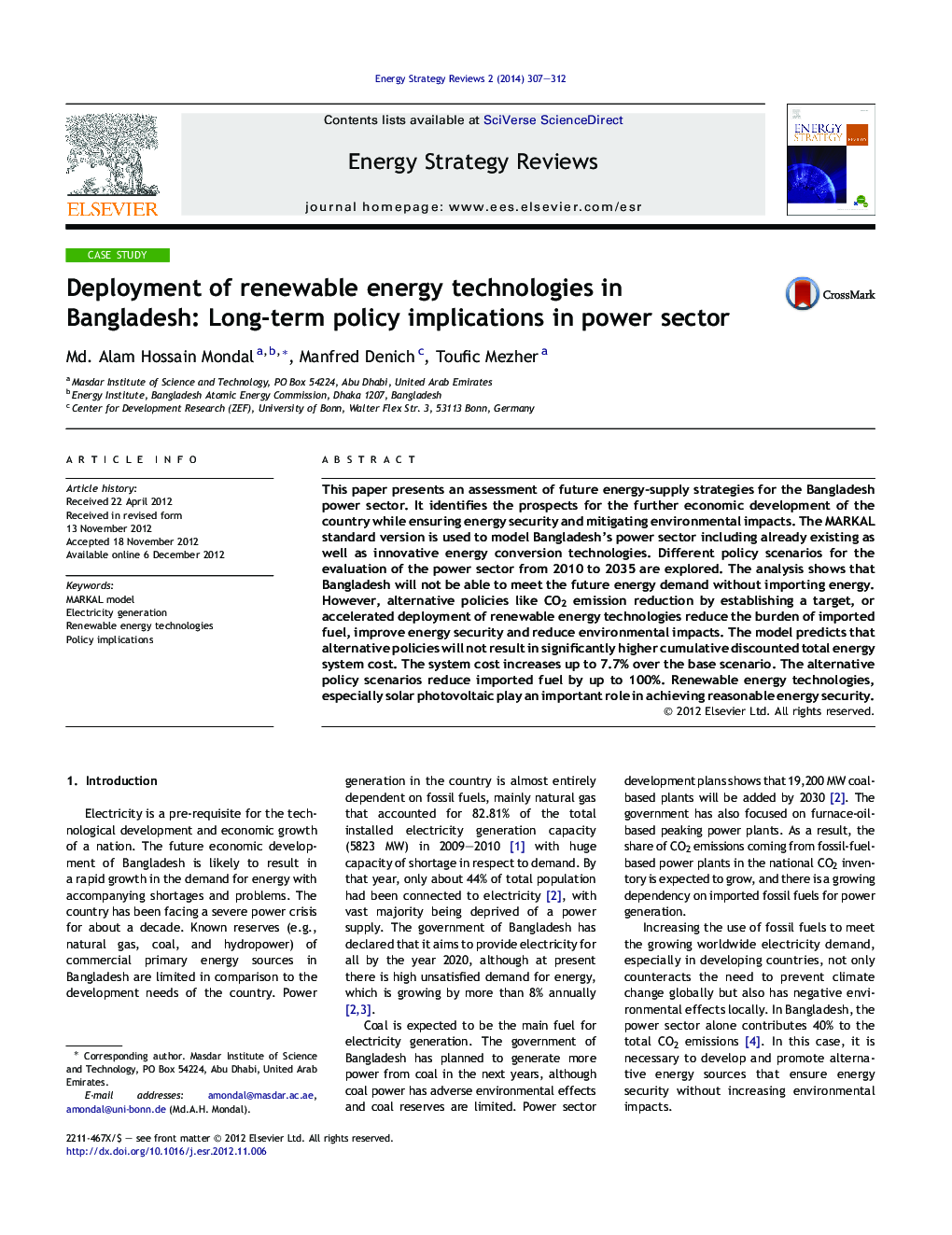| کد مقاله | کد نشریه | سال انتشار | مقاله انگلیسی | نسخه تمام متن |
|---|---|---|---|---|
| 1029819 | 1483536 | 2014 | 6 صفحه PDF | دانلود رایگان |
This paper presents an assessment of future energy-supply strategies for the Bangladesh power sector. It identifies the prospects for the further economic development of the country while ensuring energy security and mitigating environmental impacts. The MARKAL standard version is used to model Bangladesh's power sector including already existing as well as innovative energy conversion technologies. Different policy scenarios for the evaluation of the power sector from 2010 to 2035 are explored. The analysis shows that Bangladesh will not be able to meet the future energy demand without importing energy. However, alternative policies like CO2 emission reduction by establishing a target, or accelerated deployment of renewable energy technologies reduce the burden of imported fuel, improve energy security and reduce environmental impacts. The model predicts that alternative policies will not result in significantly higher cumulative discounted total energy system cost. The system cost increases up to 7.7% over the base scenario. The alternative policy scenarios reduce imported fuel by up to 100%. Renewable energy technologies, especially solar photovoltaic play an important role in achieving reasonable energy security.
► Assessment of future energy-supply strategies for power sector is essential for sustainable development.
► Renewable energy technologies play an important role for achieving sustainable development.
► MARKAL optimization energy-system model used for the analysis of Bangladesh power sector.
► The results show that implications of long-term policies reduce significant amount of imported fuel and CO2 emissions.
► The total system costs increase up to 7.7% for policy scenarios compare to base scenario.
Journal: Energy Strategy Reviews - Volume 2, Issues 3–4, February 2014, Pages 307–312
